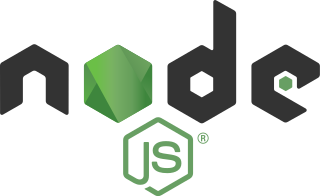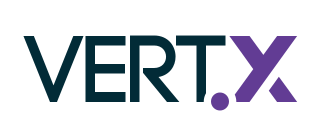
Ruby on Rails is a server-side web application framework written in Ruby under the MIT License. Rails is a model–view–controller (MVC) framework, providing default structures for a database, a web service, and web pages. It encourages and facilitates the use of web standards such as JSON or XML for data transfer and HTML, CSS and JavaScript for user interfacing. In addition to MVC, Rails emphasizes the use of other well-known software engineering patterns and paradigms, including convention over configuration (CoC), don't repeat yourself (DRY), and the active record pattern.
The actor model in computer science is a mathematical model of concurrent computation that treats actor as the universal primitive of concurrent computation. In response to a message it receives, an actor can: make local decisions, create more actors, send more messages, and determine how to respond to the next message received. Actors may modify their own private state, but can only affect each other indirectly through messaging.

Django is a free and open-source, Python-based web framework that follows the model–template–views (MTV) architectural pattern. It is maintained by the Django Software Foundation (DSF), an independent organization established in the US as a 501(c)(3) non-profit.

Aptana, Inc. is a company that makes web application development tools for use with a variety of programming languages. Aptana's main products include Aptana Studio, Aptana Cloud and Aptana Jaxer.
Mongrel is an open-source software HTTP library and web server written in Ruby by Zed Shaw. It is used to run Ruby web applications and presents a standard HTTP interface. This makes layering other servers in front of it possible using a web proxy, a load balancer, or a combination of both, instead of having to use more conventional methods employed to run scripts such as FastCGI or SCGI to communicate. This is made possible by integrating a custom high-performance HTTP request parser implemented using Ragel.
In computer programming, a green thread or virtual thread is a thread that is scheduled by a runtime library or virtual machine (VM) instead of natively by the underlying operating system (OS). Green threads emulate multithreaded environments without relying on any native OS abilities, and they are managed in user space instead of kernel space, enabling them to work in environments that do not have native thread support.
This is a comparison of notable free and open-source configuration management software, suitable for tasks like server configuration, orchestration and infrastructure as code typically performed by a system administrator.
oneAPI Threading Building Blocks, is a C++ template library developed by Intel for parallel programming on multi-core processors. Using TBB, a computation is broken down into tasks that can run in parallel. The library manages and schedules threads to execute these tasks.
An embedded database system is a database management system (DBMS) which is tightly integrated with an application software; it is embedded in the application. It is a broad technology category that includes:

The TurnKey Linux Virtual Appliance Library is a free open-source software project which develops a range of Debian-based pre-packaged server software appliances. Turnkey appliances can be deployed as a virtual machine, in cloud computing services such as Amazon Web Services or installed in physical computers.

Go is a statically typed, compiled programming language designed at Google by Robert Griesemer, Rob Pike, and Ken Thompson. It is syntactically similar to C, but with memory safety, garbage collection, structural typing, and CSP-style concurrency. It is often referred to as Golang because of its former domain name, golang.org, but its proper name is Go.

Node.js is an open-source server environment. Node.js is cross-platform and runs on Windows, Linux, Unix, and macOS. Node.js is a back-end JavaScript runtime environment. Node.js runs on the V8 JavaScript Engine and executes JavaScript code outside a web browser.

Homebrew is a free and open-source software package management system that simplifies the installation of software on Apple's operating system, macOS, as well as Linux. The name is intended to suggest the idea of building software on the Mac depending on the user's taste. Originally written by Max Howell, the package manager has gained popularity in the Ruby on Rails community and earned praise for its extensibility. Homebrew has been recommended for its ease of use as well as its integration into the command line interface. Homebrew is a non-profit project member of the Software Freedom Conservancy, and is run entirely by unpaid volunteers.

Eclipse Vert.x is a polyglot event-driven application framework that runs on the Java Virtual Machine.
Elixir is a functional, concurrent, general-purpose programming language that runs on the BEAM virtual machine which is also used to implement the Erlang programming language. Elixir builds on top of Erlang and shares the same abstractions for building distributed, fault-tolerant applications. Elixir also provides productive tooling and an extensible design. The latter is supported by compile-time metaprogramming with macros and polymorphism via protocols.
Docker is a set of platform as a service (PaaS) products that use OS-level virtualization to deliver software in packages called containers. The service has both free and premium tiers. The software that hosts the containers is called Docker Engine. It was first started in 2013 and is developed by Docker, Inc.
Perforce, legally Perforce Software, Inc., is an American developer of software used for developing and running applications, including version control software, web-based repository management, developer collaboration, application lifecycle management, web application servers, debugging tools and Agile planning software.

RocksDB is a high performance embedded database for key-value data. It is a fork of Google's LevelDB optimized to exploit many CPU cores, and make efficient use of fast storage, such as solid-state drives (SSD), for input/output (I/O) bound workloads. It is based on a log-structured merge-tree data structure. It is written in C++ and provides official language bindings for C++, C, and Java; alongside many third-party language bindings. RocksDB is open-source software, and was originally released under a BSD 3-clause license. However, in July 2017 the project was migrated to a dual license of both Apache 2.0 and GPLv2 license, possibly in response to the Apache Software Foundation's blacklist of the previous BSD+Patents license clause.
Microsoft, a technology company historically known for its opposition to the open source software paradigm, turned to embrace the approach in the 2010s. From the 1970s through 2000s under CEOs Bill Gates and Steve Ballmer, Microsoft viewed the community creation and sharing of communal code, later to be known as free and open source software, as a threat to its business, and both executives spoke negatively against it. In the 2010s, as the industry turned towards cloud, embedded, and mobile computing—technologies powered by open source advances—CEO Satya Nadella led Microsoft towards open source adoption although Microsoft's traditional Windows business continued to grow throughout this period generating revenues of 26.8 billion in the third quarter of 2018, while Microsoft's Azure cloud revenues nearly doubled.








